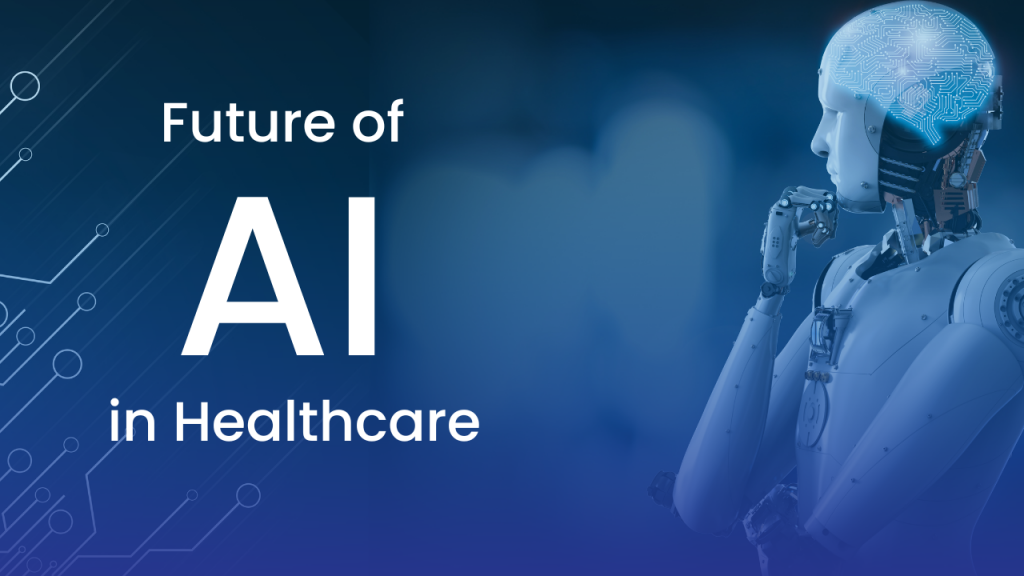
The Future of AI in Healthcare: Current Applications and Future Directions
In the current era of rapid technological advancement, Artificial Intelligence (AI) plays a pivotal role in driving research and development across various facets of human life. Healthcare, in particular, stands to benefit immensely from AI's integration. AI is poised to revolutionize patient care by enhancing diagnostic accuracy, predicting disease trends, and personalizing treatment plans based on vast datasets and complex algorithms. Moreover, AI-powered technologies like machine learning enable healthcare providers to streamline administrative tasks, allocate resources more efficiently, and ultimately improve patient outcomes. This transformative potential not only promises to elevate the standard of care but also aims to make healthcare more accessible and responsive to individual patient needs. As AI continues to evolve, its role in healthcare is set to expand, ushering in a new era of innovation and empowerment in the field of medicine.
Current AI Software Used in Healthcare
- IBM Watson for Oncology: Used at the University of California, Los Angeles (UCLA) Medical Center to analyze genomic data and provide personalized treatment plans for cancer patients.
- Google's DeepMind Health: Used at the Royal Free London NHS Foundation Trust to analyze medical images and detect eye diseases such as diabetic retinopathy.
- Medtronic's Sugar.IQ: Used at the University of California, San Francisco (UCSF) Medical Center to analyze glucose levels and provide personalized insulin dosing recommendations for patients with type 1 diabetes.
- Aidence's AI-powered imaging analysis: Used at the University of Amsterdam to analyze medical images and detect diseases such as lung cancer.
Facilities Using AI in Healthcare
- Mayo Clinic: Using AI-powered chatbots to provide patient engagement and education.
- Cleveland Clinic: Using AI-powered predictive analytics to identify high-risk patients and prevent readmissions.
- Johns Hopkins Hospital: Using AI-powered natural language processing to analyze patient data and improve patient outcomes.
- University of California, San Francisco (UCSF) Medical Center: Using AI-powered robotic surgery to perform complex surgical procedures.
Enhancements to the Healthcare System
- Improved Patient Outcomes: AI-powered diagnosis and treatment plans can lead to improved patient outcomes and reduced mortality rates.
- Increased Efficiency: AI-powered administrative tasks can reduce the workload of healthcare providers and improve patient flow.
- Personalized Medicine: AI-powered analysis of genomic data can provide personalized treatment plans and improve patient outcomes.
- Enhanced Patient Engagement: AI-powered patient engagement platforms can improve patient satisfaction and reduce readmissions.
AI-Based Robotic Surgery
AI-based robotic surgery is a rapidly growing field that combines the precision of robotic surgery with the power of AI. AI algorithms can analyze patient data and provide real-time feedback to surgeons during complex procedures
Examples of AI-Based Robotic Surgery:
- da Vinci Surgical System: Used at the University of California, Los Angeles (UCLA) Medical Center to perform complex surgical procedures such as prostatectomies and hysterectomies.
- Medrobotics' Flex Robotic System: Used at the University of California, San Francisco (UCSF) Medical Center to perform minimally invasive surgical procedures such as sinus surgery and ear surgery.
Challenges and Limitations
While AI has the potential to revolutionize healthcare, there are challenges and limitations to its adoption. These include:
Data Quality and Availability
AI algorithms require high-quality and large amounts of data to provide accurate results. However, in the healthcare industry, data quality and availability can be a significant challenge. Here are some reasons why:
- Incomplete or inaccurate data: Medical records may contain incomplete or inaccurate information, which can lead to biased or inaccurate results.
- Limited data availability: Some medical conditions or patient populations may have limited data availability, making it difficult to train AI algorithms.
- Data silos: Data may be stored in different formats or systems, making it difficult to integrate and analyze.
- Data security and privacy: Healthcare data is sensitive and requires strict security and privacy measures to protect patient confidentiality.
Bias in AI Algorithms
AI algorithms can be biased if they are trained on biased data, which can lead to inaccurate results. Here are some reasons why:
- Biased data: AI algorithms can learn biases from the data they are trained on, which can be reflected in their results.
- Lack of diversity: AI algorithms may not be trained on diverse datasets, which can lead to biases towards certain populations or conditions.
- Unintended consequences: AI algorithms may have unintended consequences, such as perpetuating existing biases or exacerbating health disparities.
Regulatory Hurdles
AI-powered medical devices and software must comply with regulatory requirements, which can be time-consuming and costly. Here are some reasons why:
- FDA regulations: AI-powered medical devices and software must comply with FDA regulations, which can be complex and time-consuming.
- HIPAA compliance: AI-powered healthcare solutions must comply with HIPAA regulations, which can be challenging and costly.
- International regulations: AI-powered healthcare solutions may need to comply with international regulations, which can add complexity and cost.
Patient Acceptance and Trust
The most important objection or hurdle in AI based healthcare system is patients may be hesitant to adopt AI-powered healthcare solutions due to concerns about data privacy and security. Here are some reasons why:
- Data privacy concerns: Patients may be concerned about the privacy and security of their personal health data.
- Lack of transparency: Patients may not understand how AI algorithms work or how their data is used.
- Fear of job replacement: Patients may fear that AI-powered healthcare solutions will replace human healthcare providers.
Conclusion
Artificial Intelligence (AI) is revolutionizing healthcare by enhancing patient outcomes, reducing costs, and improving overall healthcare experiences. AI analyzes extensive datasets to accelerate diagnostics, tailor treatment plans, and forecast health trends with unprecedented accuracy. Despite challenges such as data privacy concerns and regulatory complexities, AI-driven solutions streamline operations and increase healthcare accessibility. As AI evolves, its integration promises a future where healthcare is more personalized, efficient, and universally accessible, marking a significant shift towards proactive and data-driven healthcare solutions that prioritize patient well-being and medical efficacy.


